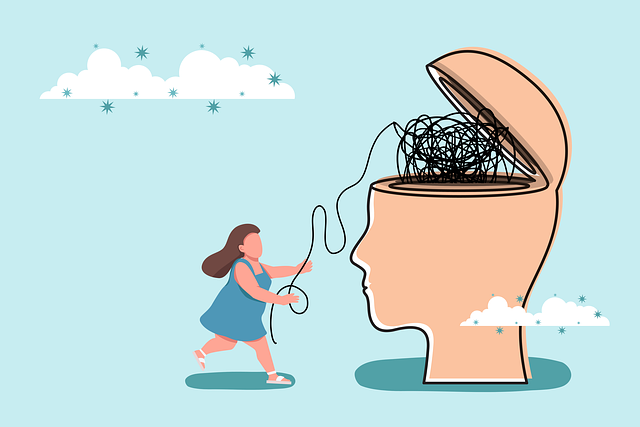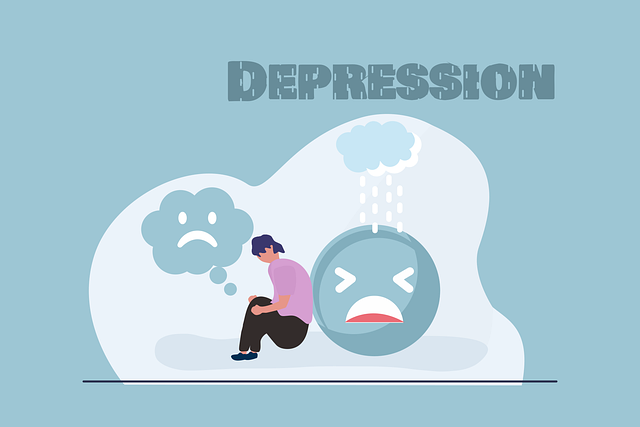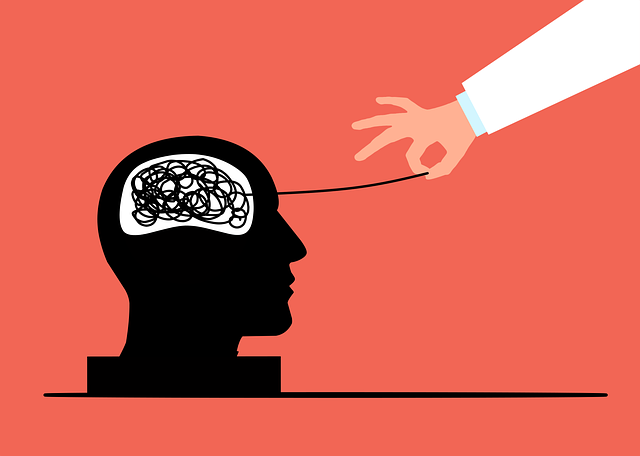Mindfulness meditation, popularized by Littleton Biofeedback Therapy, offers individuals a powerful tool to enhance emotional intelligence and prevent burnout among healthcare providers. By focusing on the present moment without judgment, this ancient practice improves stress reduction, mental clarity, and self-awareness. Incorporating real-time feedback from Littleton Biofeedback Therapy deepens self-understanding and allows control over stress, muscle tension, and emotional responses. Starting a daily meditation routine in a peaceful environment, with clear intentions, can significantly improve emotional well-being, prevent depression, and enhance professional relationships for healthcare providers and anyone seeking better mental health.
Unwind your mind and embrace tranquility with mindfulness meditation—a powerful tool for enhancing mental well-being. This comprehensive guide offers practical advice on leveraging Littleton Biofeedback Therapy to transform your meditation practice. From grasping the fundamentals of mindfulness to establishing a consistent routine, we’ll explore essential techniques and tools. Discover how creating a peaceful environment and integrating mindful moments into daily life can lead to profound benefits, allowing you to navigate life’s challenges with renewed clarity and composure.
- Understanding Mindfulness Meditation: A Basic Overview
- Benefits of Incorporating Littleton Biofeedback Therapy
- Getting Started: Essential Tools and Environment for Practice
- Techniques for Effective Mindful Moments
- Cultivating a Consistent Meditation Routine
Understanding Mindfulness Meditation: A Basic Overview

Mindfulness meditation is a practice that encourages individuals to focus on the present moment, calmly acknowledging and accepting their feelings, thoughts, and bodily sensations. It involves observing one’s internal experiences without judgment, fostering a deeper understanding of oneself. This ancient technique has gained prominence in modern times, especially through Littleton Biofeedback Therapy, as a powerful tool for stress reduction and improved well-being.
For healthcare providers, mindfulness meditation can be a game-changer in preventing burnout. By cultivating present-moment awareness, practitioners can enhance their emotional intelligence, making them more attuned to their patients’ needs. This practice also promotes self-care, allowing professionals to better manage stress, improve focus, and maintain a sense of calm amidst the hustle and bustle of daily work.
Benefits of Incorporating Littleton Biofeedback Therapy

Incorporating Littleton Biofeedback Therapy into your mindfulness meditation practice offers a multitude of benefits for both mental and physical health. This innovative approach combines the power of mindfulness with precise, real-time information about your bodily responses, enabling deeper self-awareness exercises. By providing immediate feedback on physiological states, biofeedback therapy helps individuals gain better control over their stress levels, muscle tension, and even emotional responses—all crucial aspects for maintaining a healthy mind.
For those looking to enhance their self-care practices and depression prevention strategies, Littleton Biofeedback Therapy provides a practical tool. It allows individuals to monitor and modulate their bodily reactions, creating a sense of agency over their well-being. Regular practice can lead to improved relaxation techniques, enhanced focus, and better emotional regulation—all contributing to a more balanced and peaceful state of being. This therapy complements traditional meditation by offering tangible insights into the mind-body connection, making self-care practices more effective and accessible.
Getting Started: Essential Tools and Environment for Practice

Starting your mindfulness meditation journey is simpler than you think. At Littleton Biofeedback Therapy, we often recommend a calm, distraction-free environment to cultivate a regular practice. This could be a quiet corner in your home or a serene outdoor space where you can sit comfortably and undisturbed for at least 10–20 minutes. Investing in a good meditation cushion or a supportive chair is beneficial to maintain proper posture, enabling better focus and preventing discomfort during sessions.
In addition to physical tools, setting specific intentions for your practice is key. Whether it’s improving emotional regulation, reducing stress, or cultivating mental clarity, defining your goals allows you to tailor your meditation techniques accordingly. To enhance your learning experience, consider exploring Mental Health Education Programs Design resources or even listening to Mental Wellness Podcast Series production tailored for mindfulness practices.
Techniques for Effective Mindful Moments

Incorporating mindfulness into daily routines can be a powerful tool for enhancing emotional well-being and promoting mental clarity. Littleton Biofeedback Therapy offers valuable insights into effective techniques to make the most of each mindful moment. One such technique is focusing on one’s breath, a simple yet profound practice that centers the mind. By paying close attention to the inhalation and exhalation, individuals can calm their thoughts and cultivate present-moment awareness. This practice not only improves mood management but also serves as an excellent depression prevention strategy, allowing individuals to intercept negative thought patterns before they escalate.
Additionally, mindfulness meditation encourages mindful observation of physical sensations without judgment. This body scan technique helps individuals develop a deeper connection with their bodies, fostering emotional intelligence and self-awareness. By regularly engaging in such practices, one can enhance overall well-being and cultivate the skills needed for effective stress management. These mindfulness techniques, when integrated into daily life, contribute to a more balanced and peaceful state of mind, making them valuable tools for anyone seeking to improve their mental health.
Cultivating a Consistent Meditation Routine

Cultivating a consistent meditation routine is akin to tending to a garden; it requires dedication and regular care. For healthcare providers, establishing this practice can be a powerful tool in burnout prevention strategies. By setting aside dedicated time each day for mindfulness meditation, practitioners can enhance their mental health policy analysis and advocacy efforts. Even a brief morning or evening session can significantly impact one’s overall well-being.
In the hustle and bustle of daily life, it’s easy to forget the importance of self-care. Littleton Biofeedback Therapy offers guidance in this regard, emphasizing that regular meditation practice fosters resilience and emotional balance. This consistent routine allows for moments of respite, enabling healthcare professionals to approach their work with renewed energy and focus. Just as Social Skills Training enhances interpersonal connections, mindfulness meditation cultivates inner peace, reflecting positively on both personal and professional relationships.
Mindfulness meditation, with its roots in ancient practices, has found new life through modern approaches like Littleton Biofeedback Therapy. By understanding the basics, leveraging the right tools and environment, mastering effective techniques, and cultivating a consistent routine, anyone can harness the powerful benefits of mindfulness. Incorporating these practices into daily life can lead to improved mental clarity, reduced stress, and enhanced overall well-being. Whether you’re a beginner or looking to deepen your practice, the journey of mindfulness meditation is a testament to self-discovery and inner peace.














